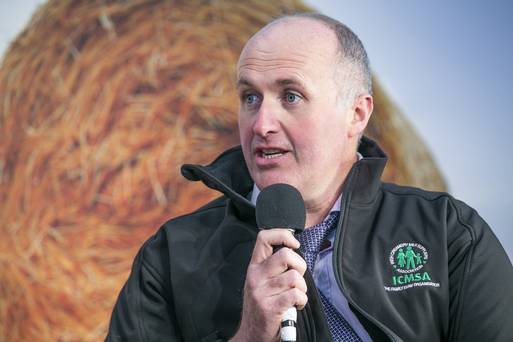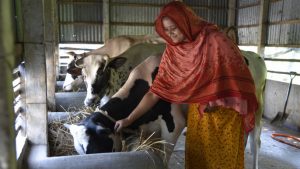The common thread is farm incomes and the almost incessant unfair attacks on agriculture from vested interest groups.
With less than 80 days to go to Brexit, farmers have been left cruelly exposed by the EU and our Government.
The decision to exclude dairy farmers milking over 40 cows from the BEAM (Beef Exceptional Aid Measure) scheme showed a complete lack of understanding of the impact Brexit is having on individual farm families.
The beef sector has taken the biggest Brexit hit to date, with the losses really ramping up since this time last year.
But let’s be clear: Brexit is impacting on returns in all sectors and it is time that the Government published its concrete plans and showed farmers that they ‘have our back’ as they claim.
We cannot be expected to take a massively disproportionate hit on Brexit and all losses need to be treated equally and dealt with fairly.
In relation to beef, we do not know whether MII will respond to the reasonable proposals put to them at last week’s talks and finally address the long-standing frustrations felt by beef farmers.
No-one can say for certain where we are going or what we’re going to end up with, but we can’t stay with this present system if we are serious about restoring confidence in the beef sector.
If the factories are unable or unwilling to engage on relatively straightforward matters like live weighing and the 30-month rule, then it does not bode well for their willingness to accept the fact that the changes required are going to need go well past these measures and into much more substantial areas including the farmer share of the final consumer price.
Milk prices
Milk price this year has been sluggish and the milk price reductions announced for July by some processors are of huge concern and will hit dairy farm incomes for 2019.
The Ornua PPI is the benchmark and farmers expect their Co-ops to measure up to this.
Forget about projected annual incomes that take no account of the borrowings necessary to hit the volumes necessary to generate those projected incomes.
Milk price in Ireland today – adjusted for inflation – is more or less the same as was paid to farmers 25 or 30 years ago.
Family dairy farming in Ireland today is most definitely not ‘the land of milk and honey’ and milk price needs to increase to encourage the next generation to take up dairy farming as a career.
Add to that the relentless margin-grabbing by the corporate retailers that mirrors that experienced in the beef supply chain and you will start to grasp the ongoing pressures on dairy farm incomes.
The issue of growing regulation on farming needs to be addressed in a way that takes account of the practical realities of farming today.
The first key point is that regulation comes at a financial cost. The second point follows from that: farmers cannot continue to be expected to take the financial hit on regulation.
ICMSA’s position is straightforward – the price of food will simply have to factor in the cost of regulation.
If the food corporations, the retailers and Government are serious in relation to their sustainability agendas, then consumer food prices will simply have to reflect the cost of regulation associated sustainable production.
The main focus over the past number of weeks has been on the beef sector, the level of income for beef farmers, beef specifications and pricing and the collapse in beef prices.
Things need to change and it is important to point out that similar issues will arise in other sectors unless we address the root causes.
QPS Grid
It is a matter of record that it is 10 years since ICMSA first identified the QPS Grid as not being fit for purpose and both overly complex in terms of the grades.
It is also brutally simple in its function to take money out of the farmer ‘selling’ side of the equation and divert it over to the factory ‘buying’ side.
We argued loudly at the time that the grid was design-defective and we went further.
We commissioned two separate reports that showed conclusively that in the decade since it was introduced, the grid has seen at least €120 million transferred from the farmer side to the factory side.
We have published the data twice and publicly challenged anyone to rebut it.
No-one has ever come forward to differ with our research.
The grid review announced last week will have to take account of today’s market realities, market preferences and the changing structure of the Irish beef herd. It will also have to move towards considerable simplification of the grid itself
In this regard, dairy beef production needs to be re-evaluated towards delivering a product towards either the dairy farmer or beef farmer that will leave a reasonable margin for that beef producer.
There are perceived tensions between dairy and beef farmers and this needs to be addressed and dealt with.
I have no doubt that rather than working against each other, we must develop a model of co-operation between the dairy farmer and the beef farmer that will benefit and help move us from the present position where neither is being paid properly for their work or product.
Consumer prices
A good income for all family farms must be our objective.
Our Government needs to up its game on Brexit in terms of spelling out exactly how they intend to support farmers who are losing money.
Farmers need to get their fair share of the final consumer price and if processors/retailers don’t address this matter, than the EU should step in and follow the French model of margin protection.
Finally, the various farm sectors need to co-operate to develop a sustainable business model for all sectors.
Pat McCormack is president of the Irish Creamery Milk Suppliers Association













